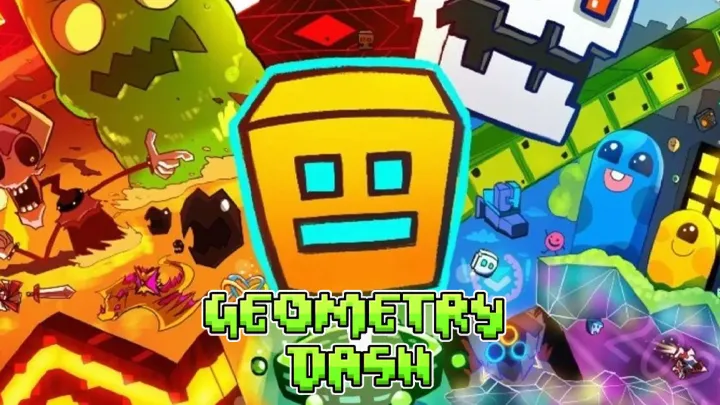Introduction
Rust, developed by Facepunch Studios, has become synonymous with survival gaming since its early access release in 2013. This multiplayer game plunges players into a harsh, post-apocalyptic world where the primary objective is survival—against both the environment and other players. Ever since its full release in early 2018, Rust has continued to evolve, introducing new content, gameplay mechanics, and improvements that keep its fanbase engaged. In this review, we'll conduct an in-depth analysis of Rust's gameplay mechanics, visual design, audio experience, community dynamics, strengths, weaknesses, and future potential.
Gameplay Mechanics
Core Gameplay Loop
The heart of Rust lies in its relentless survival loop. Players must gather resources, build shelters, craft equipment, and fend off threats from wildlife and other players. The core gameplay includes several interconnected systems that create a challenging environment.
- Resource Gathering:
- Players begin with nothing but a rock and a torch. Resources like wood, stone, and metal must be gathered to craft tools, weapons, and building materials. The world is filled with resources, but they are not easily accessible, requiring exploration and sometimes combat to acquire them.
- Building Mechanics:
- Building plays a crucial role in Rust. Players can construct bases using gathered materials, allowing for shelter and a secure location to store loot. The building system is flexible, enabling players to create intricate structures, traps, and defenses. However, the complexity also means that building can be time-consuming and resource-intensive.
- Crafting System:
- The extensive crafting system allows players to create a wide variety of tools, weapons, and armor. Crafting requires specific resources and blueprints, which adds a strategic element to resource gathering. Players must decide whether to prioritize crafting weapons for defense or tools to enhance resource collection.
- Combat Mechanics:
- Combat is a significant aspect of Rust. Players can engage in both ranged and melee combat, using weapons ranging from bows and crossbows to firearms. Gunplay is influenced by weapon types, bullet drop, and player skill, requiring practice to master. It’s a high-stakes environment where the threat of ambush is constant.
- Survival Elements:
- Players must manage their health, hunger, and hydration levels. Finding food and water can be challenging, requiring players to hunt animals, gather crops, or scavenge from other players. Negative effects from neglecting these needs can lead to death, adding a layer of urgency to gameplay.
Unique Features
- Environmental Hazards:
- Rust immerses players in a world filled with environmental challenges, including radiation zones, wildlife predators, and weather conditions. This dynamic environment shapes player strategies and promotes exploration.
- Day/Night Cycle:
- The game features a realistic day/night cycle, which affects gameplay. Nighttime introduces darkness and increased danger, making it critical for players to find shelter or build secure bases.
- Social Dynamics:
- Players can form alliances, trade, or engage in ruthless rivalry. Communication through in-game voice chat or text allows for social interaction, leading to unique player-driven stories and conflicts.
Visuals and Art Style
Graphics
Rust boasts a distinct visual style characterized by:
- Realistic Environments:
- The game features a richly detailed world filled with diverse biomes, including forests, mountains, and deserts. The environmental design immerses players in a believable post-apocalyptic landscape.
- Character Models:
- Character models are well-designed, with customization options allowing players to personalize their appearance. This adds a layer of identity and individuality to the individual characters in the game.
- Lighting Effects:
- The game utilizes advanced lighting techniques, enhancing the atmosphere during the day/night cycle. Firelight, shadows, and reflections play a significant role in creating an immersive experience that feels alive.
User Experience
The user interface (UI) in Rust is functional but can be overwhelming for new players. The inventory management, crafting menus, and map navigation require a learning curve. However, experienced players will find that these systems become intuitive over time.
Audio Design
Soundtrack and Effects
The audio experience in Rust contributes significantly to immersion:
- Dynamic Sound Effects:
- Environmental sounds—such as rustling leaves, gunfire, and animal calls—bring the world to life. The game's audio cues provide important information about nearby threats and activities.
- Atmospheric Sound Design:
- The sound design captures the harshness of the environment. Wind howling through trees and distant gunfire evoke a sense of tension and urgency, enhancing the survival experience.
Voice Acting and Communication
In-game voice chat enables players to communicate in real time. This feature allows for both cooperation and deception, heightening the social dynamics and interactions between players. The ability to speak with others enhances immersion, as it mimics a real-life survival scenario.
Narrative Depth
While Rust does not feature a traditional narrative, players create their own stories through interactions, alliances, and conflicts. Each player’s journey is unique, shaped by their decisions and experiences in the game world. This emergent storytelling is a hallmark of the Rust experience and contributes to its significant replayability.
Community Aspects
Online Features
Rust thrives on its online community. The game is predominantly multiplayer, where interactions with other players are central to the experience. Players can join servers that align with their preferred playstyle, whether it be PvP-focused, role-playing, or cooperative gameplay.
Developer Engagement
Facepunch Studios actively engages with its player base through regular updates and patches. Listening to community feedback helps improve gameplay, fix bugs, and introduce new content. Events and seasonal activities keep players returning for fresh experiences.
Social Features
Players often share their experiences through platforms like Reddit and YouTube, discussing strategies, base designs, and game highlights. The community-driven content adds to the allure of Rust, as it fosters a shared understanding of gameplay dynamics.
Strengths and Weaknesses
Strengths
- Deeply Immersive Gameplay: The combination of survival mechanics, resource management, and social interactions creates a rich gameplay experience.
- Dynamic Environment: Realistic environments and weather conditions enhance immersion and require players to adapt their strategies.
- Player-Driven Stories: The emergent storytelling aspect lets players create unique experiences through their actions and interactions.
- Regular Updates: Continuous developer support ensures a fresh and evolving gameplay experience.
Weaknesses
- Steep Learning Curve: New players may find the game overwhelming due to its complexity and lack of clear tutorials.
- Toxicity in Multiplayer: The open nature of the game can lead to toxic behavior, including harassment and camping, which may deter some players.
- Performance Issues: Some players have reported lag and bugs that can impact gameplay, especially on lower-end systems.
- Time Investment: The time required to gather resources, build bases, and progress can be considerable, which may not appeal to casual gamers.
Future Prospects
Updates and Expansions
Given its ongoing popularity, Rust is likely to continue evolving. Future updates could introduce new content, improved mechanics, and expanded maps that offer fresh experiences for players.
Community Engagement
Emphasizing community-driven events and competitions could foster a stronger sense of belonging among players. Introducing systems that reward cooperative gameplay could also enhance the social aspects of the game.
Conclusion
Rust remains a titan in the survival genre, offering an unparalleled experience marked by intense competition, resource management, and the ever-present struggle for survival. Its combination of realistic gameplay mechanics, engaging visuals, and a vibrant community ensures that it stands out in the crowded landscape of multiplayer gaming.
Final Thoughts
In conclusion, Rust is more than just a game; it's a test of survival instincts and social dynamics. Whether you're a lone wolf looking to scavenge and thrive in a harsh world or part of a larger clan seeking dominance, Rust delivers a compelling and immersive experience. Its commitment to realism, player-driven narratives, and continuous development make it a must-play for fans of the survival genre. As players continue to forge their own paths in this unforgiving landscape, the stories born within Rust will surely resonate, creating a lasting impact in the gaming world.
















































































